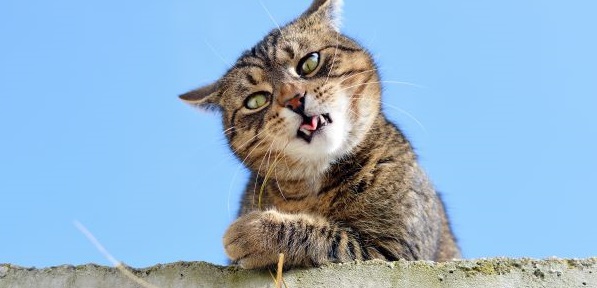
Do Cats Fart?
Curious about farting cats? Careful, curiosity kill the cat, but did the cat fart?
Farting, scientifically known as flatulence, is a natural bodily function in many animals, including humans. It occurs when gas accumulates in the digestive system and is then released through the rectum. While it is commonly observed in humans (especially dads) and some other animals, the question arises: do cats also experience this bodily function?
The answer is yes, cats do fart. Like humans and many other mammals, cats have a digestive system that produces gas as a byproduct of digestion. When they consume food, it goes through a series of processes within their gastrointestinal tract, where bacteria break it down, releasing gases such as methane, carbon dioxide, and nitrogen. These gases can build up and eventually be expelled through the rectum.
However, it is important to note that cats are generally less prone to excessive flatulence compared to certain other animals, such as dogs. This is due to several factors, including their diet, anatomy, and metabolism. Cats are obligate carnivores, which means their diet primarily consists of animal-based protein. This type of diet is efficiently processed by their digestive system, resulting in fewer gases being produced. Additionally, cats have a shorter digestive tract compared to herbivores, allowing for faster digestion and less fermentation of food, which can contribute to flatulence.
Why do cats fart less?
Cats have a unique digestive system that helps minimize the occurrence of excessive gas. They possess a specialized structure called the ileocecocolic junction, which acts as a barrier between the small intestine and large intestine. This junction helps prevent the retrograde movement of gas and bacteria, reducing the likelihood of gas buildup in the large intestine.
While cats do fart, their flatulence is often less audible and less smelly compared to that of humans or dogs. Cats are known for their grace and subtlety, and this extends to their bodily functions as well. Their farts tend to be relatively silent, and the odor is usually mild compared to the pungent and sometimes noisy flatulence experienced by other animals.
What Makes Cats Fart More?
It is worth mentioning that certain factors can increase the likelihood of cats experiencing flatulence. Dietary changes, such as introducing new foods or sudden dietary transitions, can disrupt the balance of the digestive system, potentially leading to increased gas production. Additionally, certain ingredients, such as lactose or fiber-rich foods, may be more difficult for cats to digest, potentially resulting in more frequent farting. If you notice a sudden increase in flatulence or if your cat experiences other digestive issues, it is advisable to consult a veterinarian to rule out any underlying health concerns.
While cats do indeed fart, they generally do so less frequently and with less noticeable effects compared to some other animals. Their carnivorous diet, efficient digestion, and unique digestive system contribute to a lower likelihood of excessive flatulence. So, while it may be an entertaining topic to ponder, rest assured that if you have a cat, you are likely to be spared from overwhelming odors and loud sound effects associated with flatulence.

